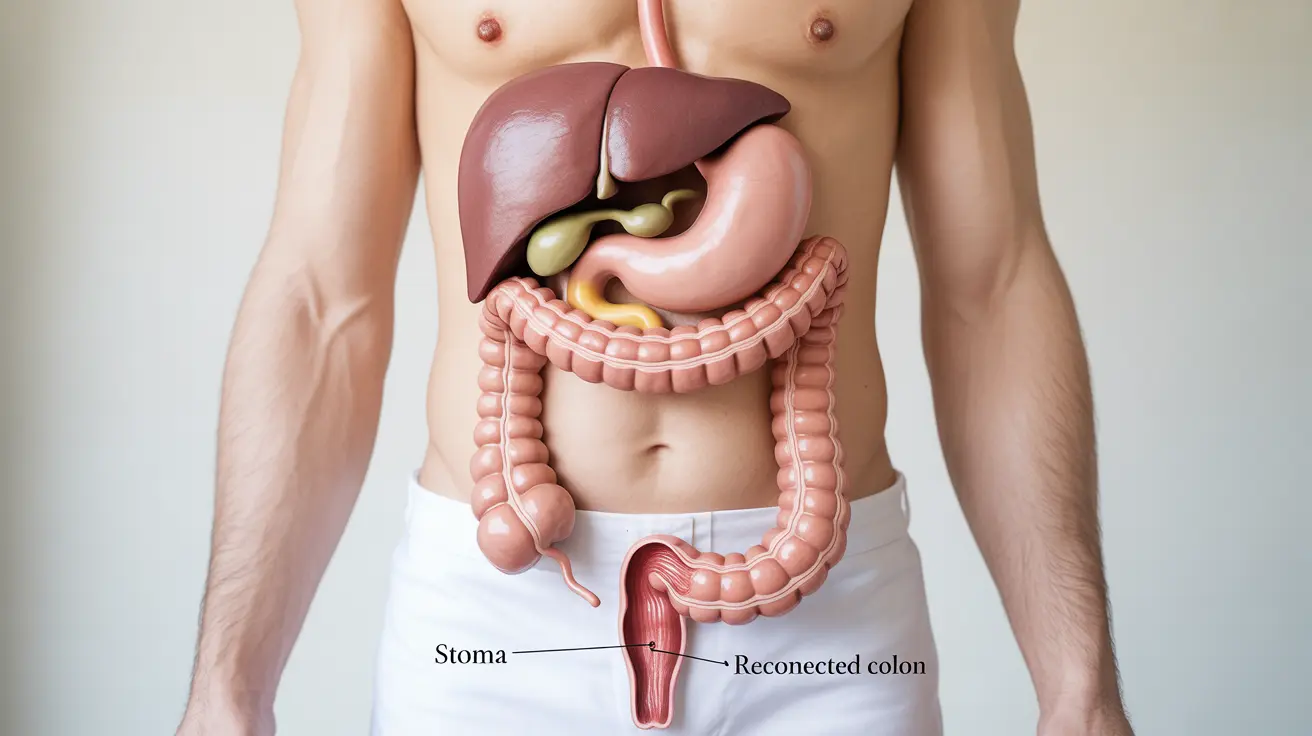A colostomy reversal is a significant surgical procedure that restores normal bowel function after a temporary colostomy. For many patients considering this surgery, understanding the success rates, recovery process, and potential outcomes is crucial for making an informed decision. This comprehensive guide will explore what you can expect from colostomy reversal surgery and help you understand if you might be a suitable candidate.
Success Rates and Patient Selection
Colostomy reversal surgery generally has favorable outcomes, with success rates ranging between 70-80% for most patients. However, these rates can vary significantly based on individual factors and the original reason for the colostomy. The key to achieving optimal results lies in careful patient selection and proper timing of the reversal procedure.
Ideal Candidates for Reversal Surgery
Not everyone with a temporary colostomy is automatically eligible for reversal surgery. The best candidates typically include:
- Patients who have fully recovered from their initial surgery
- Those with healthy bowel tissue and good anal sphincter function
- Individuals free from active inflammation or infection
- Patients in good overall health with strong healing capacity
- Those who had their colostomy placed for temporary conditions rather than chronic diseases
Potential Risks and Complications
While colostomy reversal is generally safe, it's important to understand potential complications that may arise. Common challenges include:
- Anastomotic leakage
- Wound infection
- Bowel obstruction
- Changes in bowel habits
- Temporary bowel dysfunction
Understanding these risks helps patients make informed decisions and prepare appropriately for their recovery journey.
Recovery Timeline and Process
The recovery period after colostomy reversal typically spans several weeks to months. Most patients spend 3-7 days in the hospital immediately after surgery. Full recovery often takes 6-8 weeks, during which patients gradually return to normal activities.
Early Recovery Phase
During the first few weeks after surgery, patients should expect:
- Limited physical activity
- Dietary restrictions and modifications
- Regular follow-up appointments
- Gradual improvement in bowel function
- Some discomfort and fatigue
Post-Reversal Quality of Life
Many patients experience significant improvements in their quality of life after successful colostomy reversal. However, it's important to maintain realistic expectations about the adjustment period. Some patients may experience temporary changes in bowel habits or function, which typically improve over time with proper management and support.
Frequently Asked Questions
What is the typical success rate of colostomy reversal surgery?
The typical success rate for colostomy reversal surgery ranges from 70-80%, with outcomes varying based on individual patient factors, surgical technique, and the original reason for the colostomy.
Who is considered a good candidate for colostomy reversal surgery?
Good candidates include patients who have fully recovered from their initial surgery, have healthy bowel tissue, maintain good overall health, and had their colostomy placed for temporary conditions rather than chronic diseases.
What are the common risks and complications after colostomy reversal?
Common complications include anastomotic leakage, wound infection, bowel obstruction, changes in bowel habits, and temporary bowel dysfunction. Most complications can be managed effectively with proper medical care.
How long does recovery usually take after a colostomy reversal?
Initial hospital stay typically lasts 3-7 days, with full recovery taking 6-8 weeks. Patients gradually return to normal activities during this period, with close medical monitoring.
What can I expect regarding bowel function and quality of life after colostomy reversal?
Most patients experience improved quality of life after successful reversal, though temporary changes in bowel habits are common. Bowel function typically normalizes over time, with most patients achieving satisfactory results within several months.




